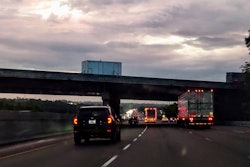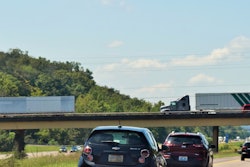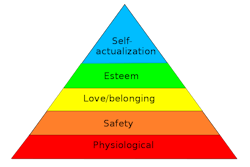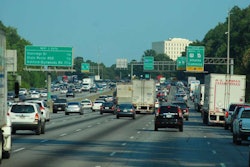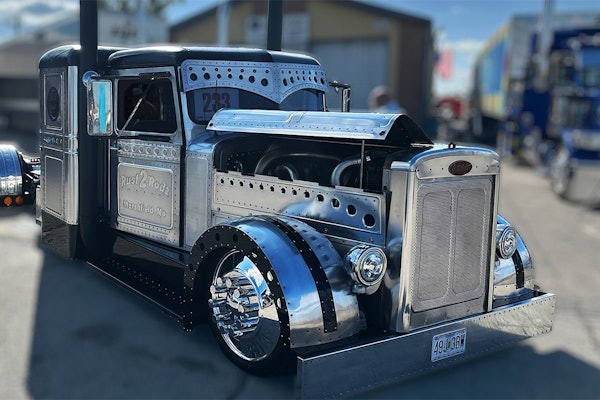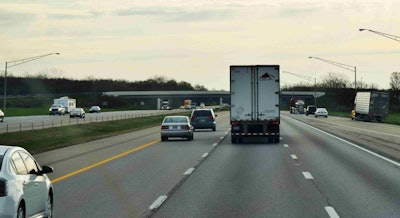
In 1978 I climbed into the cab of my Uncle Don Kelso’s Kenworth and, like any kid would, laid on the horn. I was amazed at the gauges and buttons, and the incredible distance out over the top of that long nose. But as I rode down the highways with him during that summer, I learned a more important lesson, one that too few seem to carry with them today. He taught me the meaning of professionalism and customer service.
As we hauled, I came away with the impression that Uncle Don knew pretty much everyone on the road. We talked on the CB, we stopped to help other drivers, and we spent time at his favorite mom-and-pop stops laughing with the server and joshing other drivers.
I recall an incident with one in particular, a trucker who’d gotten angry at the loading dock after being held up. I did not see anything I thought the driver should have been ashamed of, but Uncle Don didn’t see it that way. He had a chat with that trucker; Uncle Don believed he gave away every bit of power or leverage he might have had over the unload personnel by losing his temper.
“When you lose your temper with someone who couldn’t care less how you feel,” Uncle Don told me, “you give away any and all power you had to make a change.”

His message on drivers stopped on the side of the road: “If a driver doesn’t answer his radio, he may be having a medical emergency, or he may need someone to stop and make a call for him. Or maybe we can help him get going again. In any case, out here in the middle of nowhere” — we were in Kansas one particular time I recall – “it could mean life or death for that driver.”
I remember that particular trip with my Uncle as if it was yesterday, and I took the lessons learned to heart.
Times change, though not always for the better. By 1993, when I started driving, some of what I learned was routine for professionalism in trucking was no different than it had been in the 1970s. Drivers still flashed their lights off and on to let other drivers know when it was safe to return to the travel lane. Drivers still flashed a thank-you after. Drivers turned on their flashers to let other drivers know they were backing up. And though in ’93 companies were beginning to install Qualcomm communications and other units in trucks, making it easier to get help on the side of the road, other truckers still attempted to raise them on the radio to see if they needed help.
As a general rule, truckers took pride in the trade, and instead of lingering in the passing lane moved over for faster trucks, even if it meant slowing down and moving back behind a rig they had already begun to pass. Drivers would go out of their way to help others park, especially in tight spots. While most of these things continued throughout my first 12 years over-the-road, after taking a ten-year hiatus and returning to OTR in 2015, I could not believe the change.
Seldom, today, do drivers use a CB to alert other drivers of events up ahead or Smokey Bear, let alone to check on other drivers on the side of the road. Now, often instead of a quick off-and-on switch with the lights, we get hit with bright lights in the mirror. Very few issue a flash to thank a driver for telling another it’s safe to come in.
On a trip from Missouri to California and back, I kept track of the signals I got and received. Over six states and back, I flashed my lights off and on for more than 500 trucks. Out of those, I received just three proper off-and-on thank-yous and more than a hundred bright light flashes. The balance, nearly 400 truckers, simply did not acknowledge I was even there. Some came in so close to me I was forced to get on the brakes.
While we occasionally still see a trucker helping another back into a parking spot, it is so very rare it is almost a shock to see.
Some of these changes are understandable, given the progress of technology to help individual drivers with many of these tasks. But there really is no excuse for the lack of professionalism I see today. I am sure that my uncle would be turning over in his grave if he knew how we treat one another these days.
I also have been keeping an eye on Joe Public on my trips lately, and I do not believe it is an extreme statement to say that 8 out of 10 four-wheelers passing me are flying down the road with their phones in their hands, whether texting, browsing the web or just failing to use a hands-free device on a call. While that may not be a scientific study, I have conducted this observation in almost every state, and at different times of the day, and the measure is pretty consistent. Now add to this the knowledge that trucking is one of the deadliest professions, and it is no wonder that drivers are under a greater amount of stress and anxiety.
Should this excuse or explain away a lack of professionalism? Maybe I am too old-school, but as I travel this great nation from sea to shining sea, it pains me and many others I have talked to that the professionalism once so proudly held to in trucking seems to have given up the ghost.
If truckers do not appreciate other truckers, how on earth can we expect Joe Public to appreciate what we do to make their lives easier or to ever learn by our example to operate safely themselves?
Yet professionalism does not have to die. If you are reading this, take pride in what you do, help one another, and maybe, just maybe, the professional label can be proudly worn again.

